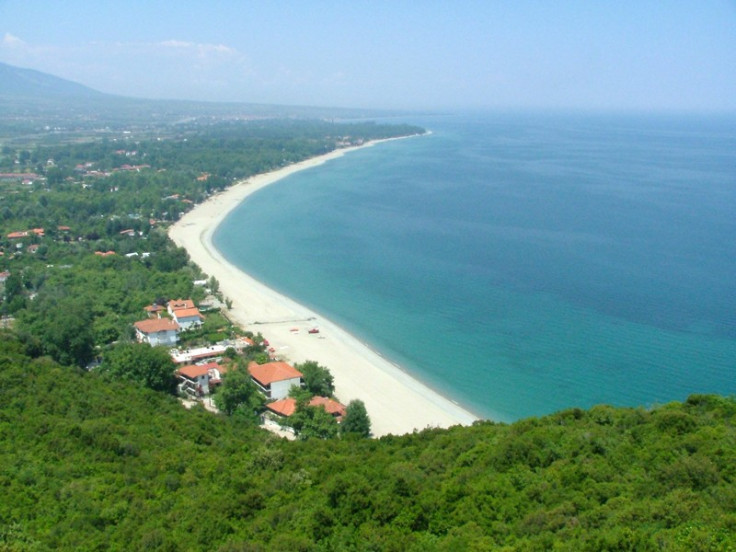Cash-Strapped Greece Sells off Palaces and Islands

Idyllic islands, spectacular stretches of coastline, marinas and even a London embassy have been put on the market in the latest fire-sale by the bankrupt Greek government.
As the condition of the new €8.8bn bailout instalment from the Troika of the EU, the IMF and the European Central Bank, 70,000 state-owned assets will have to be sold off as the government struggles to boost revenue.
Among the eye-catching items on the list are large swathes of the island of Rhodes, which has remained one-third state-owned since it was re-integrated into Greece following the Italian occupation of 1912.
One of them is the Mandraki marina, once the site of the famous Colossus of Rhodes, a 98-foot statue that bestrode the harbour entrance and was regarded as one of the seven wonders of the ancient world.
Foreign oligarchs have already been snapping up Aegean islands.
The Emir of Qatar recently bought six islands for €7 million, whilst Russian billionaire Dmitry Rybolovlev bought Skorpios, once owned by shipping magnate Aristotle Onassis, as a present for his 24-year-old socialite daughter.
Also to go under the hammer is the Royal Palace of Corfu, birthplace of Prince Philip, and numerous other state buildings, including the police headquarters in Athens, the ministry of culture, as well as the buildings that house the ministries of health, education and justice.
The Greek Embassy in Holland Park, London, is also on offer to anyone able to meet the £22m price tag.
Many of the assets have not been publicly priced, with the Greek government saying it is awaiting offers, but expects to generate from €150m-€250m for the 150-hectare Afandou estate in Rhodes.
The sell-off has provoked astonishment and condemnation from some quarters.
"We need to keep state ownership of all our assets - not sell them to the highest bidder," complained Yiannis Milios, chief economist for the opposition Syriza party to the Telegraph, who would prefer to see more use of public-private partnerships, rather than sales.
"Experience shows that the privatisation of public goods is a very bad idea. With water, for instance, the quality falls but the price rises, which is totally wrong. The government is very good at finding legal formulas to work its way round supposed guarantees of public interest. It is not a good idea at all."
However, with the Greek economy in its sixth straight year of recession after two Troika bailouts failed to produce growth, and the country's private sector shedding 1,000 jobs a day, defenders argue that extreme measures are necessary.
Stelios Stavridis is the chairman of the Hellenic Republic Asset Development Fund, which is responsible for the sell-off.
"I'm an entrepreneur, not a politician," he said, "and I have been screaming my head off that this is all about growth, job creation, wealth creation. I am the anti-bureaucracy man: we need to bring in this money - there is no other way."
"We have been acting so stupidly for years, making rules against our own interest," Stavridis added. "Being state-owned and well run is a contradiction in terms."
Stavridis' predecessor recently resigned, reportedly before he could be sacked, with the government so far having raised only €2bn from a previous round of sales begun in 2010, missing its target of €3bn by 2011.
The country has revised the amount it hopes to raise from the sales considerably, from €5bn by 2019 to €11bn by 2016, with many strongly unionised state-run industries seen as a risk by investors in a country already paralysed by waves of strikes.
© Copyright IBTimes 2025. All rights reserved.




















